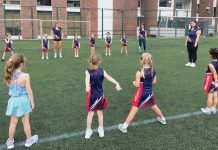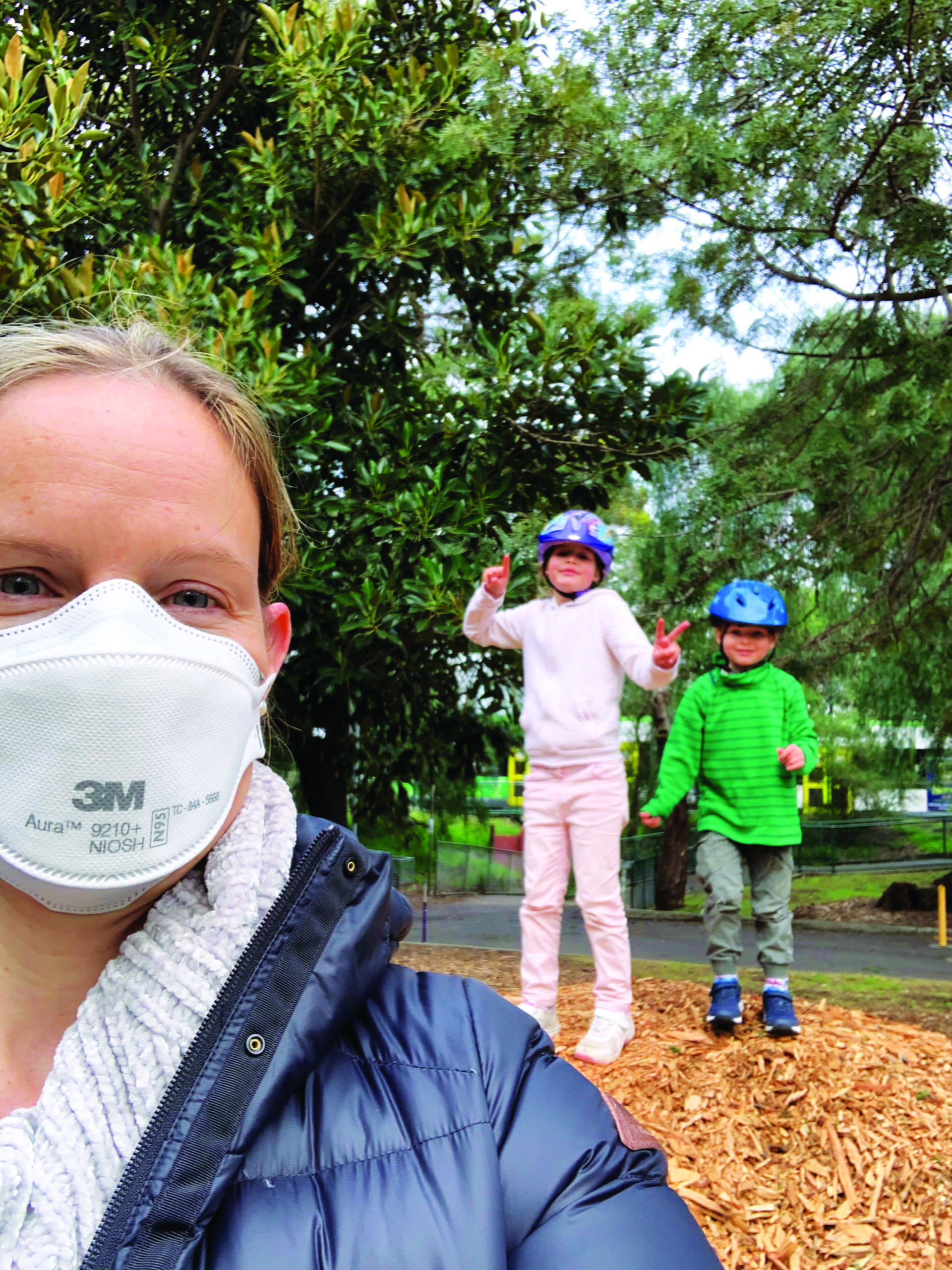
Karola Clark
From Singapore to Melbourne
The first repatriation shock came as soon as we stepped off the plane in Melbourne. As it was mid-summer, I had assumed the clothes in which we left Singapore would be fine. To welcome us back, Melbourne brought out its best four-seasons-in-one-day weather. The chilly morning breeze brought tears to my three-year-old’s eyes and I had to hastily dig around in my suitcase for something warm to wrap us up in.
After nearly five fabulous years in Singapore, we returned to our hometown of Melbourne in January this year. It was amazingly lucky timing – if our departure had been planned for just ten weeks later, COVID would have made it far more complicated.
On arrival, we went straight to our new house (bought unseen 18 months earlier), which was in the final stages of a renovation. The plan was to move into the tiny studio above the garage for a couple of weeks while the builders were finishing. After half an hour of trying to scrub the construction dust off the bathroom vanity while the builders were enthusiastically hammering in the next room, we decamped to my in-laws house.
For the next ten days we balanced daily visits to the renovation site with the mountain of life admin that comes with repatriating. A quick trip to Target to buy school lunchboxes turned into a three-hour spending spree as I picked up décor for the kids rooms, kitchen gadgets, crafting supplies and kids clothes. Target, how I missed you! The craziness of the first few weeks masked a lot of mixed emotions about returning to Melbourne. Leaving Singapore was a hard decision as we loved our life there. There was genuine heartache when saying goodbye to great friends and farewelling our helper, who was as much of a co-parent to my kids as we are.
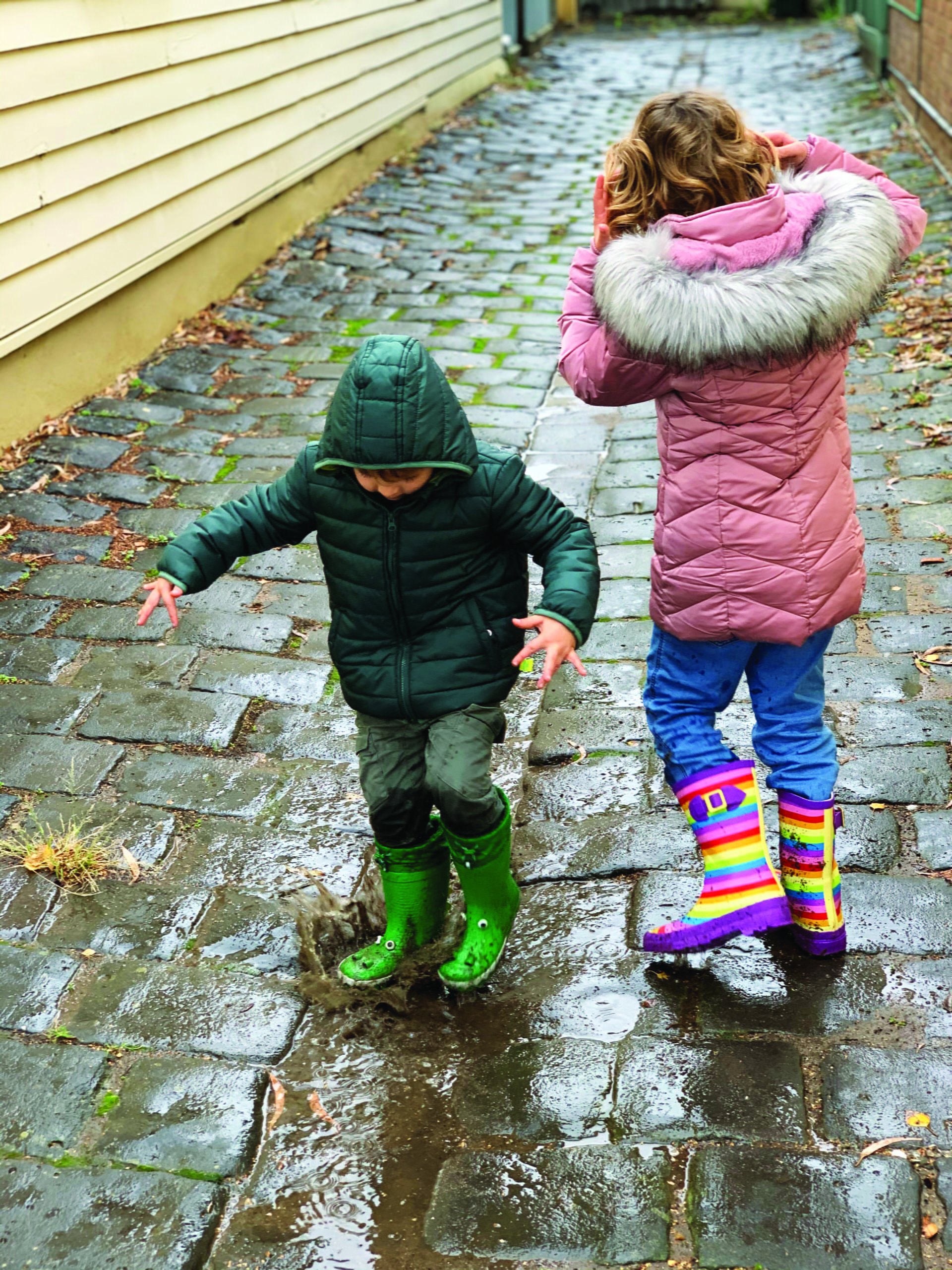
Repatriation blues were a real issue at times. I had assumed that returning to our hometown would be like slipping back into our old life. But we’d left Melbourne with a six-month-old baby and returned with a school-aged child, plus a pre-schooler. I hadn’t considered that many of our local friends had moved away or were not at the same life stage anymore. Going from an environment where we had a dozen good friends in our condo building and were always meeting friends at the pool or playground, to not knowing anyone in our neighbourhood, was a shock. About two months after arriving my three-year-old asked when we were going home. When I told him we were home, he replied, “no, our real home, Singapore.”
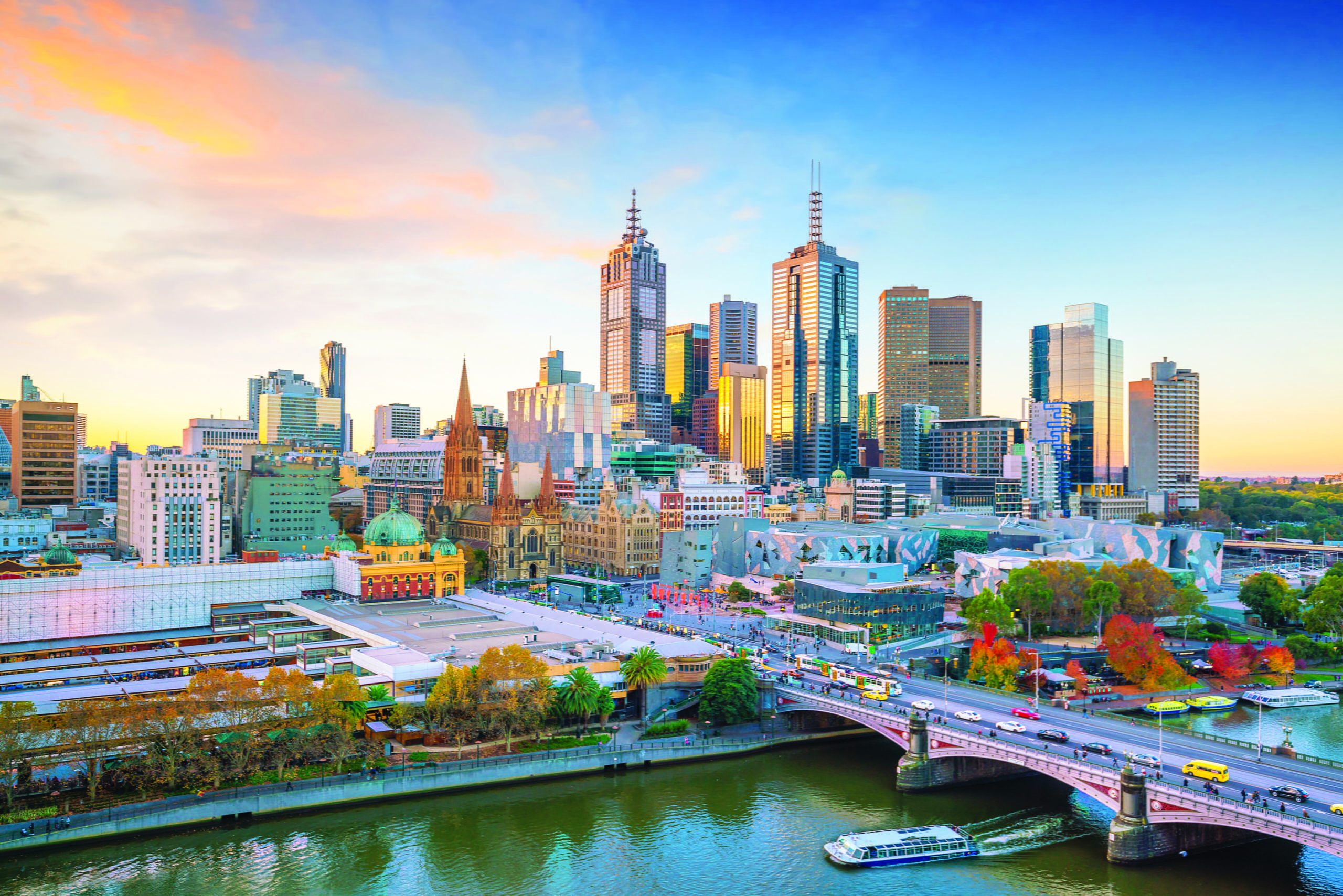
It has taken a few months, but in a strange way, the enforced slow pace of COVID life has actually helped us settle into Melbourne better. We’re spending more time together as a family, and have plenty of time for ‘nesting’ and discovering our local streets. Little pieces of Singapore have made their way into our home and lives. The antique cupboards we bought at Dempsey Hill, the photos of the stunning Marina Bay skyline on our wall, knowing how to make a perfect Singapore Sling, still saying ‘cannot’ instead of ‘no’, and above all the lifelong friends we made though a shared experience of good times on the Little Red Dot.
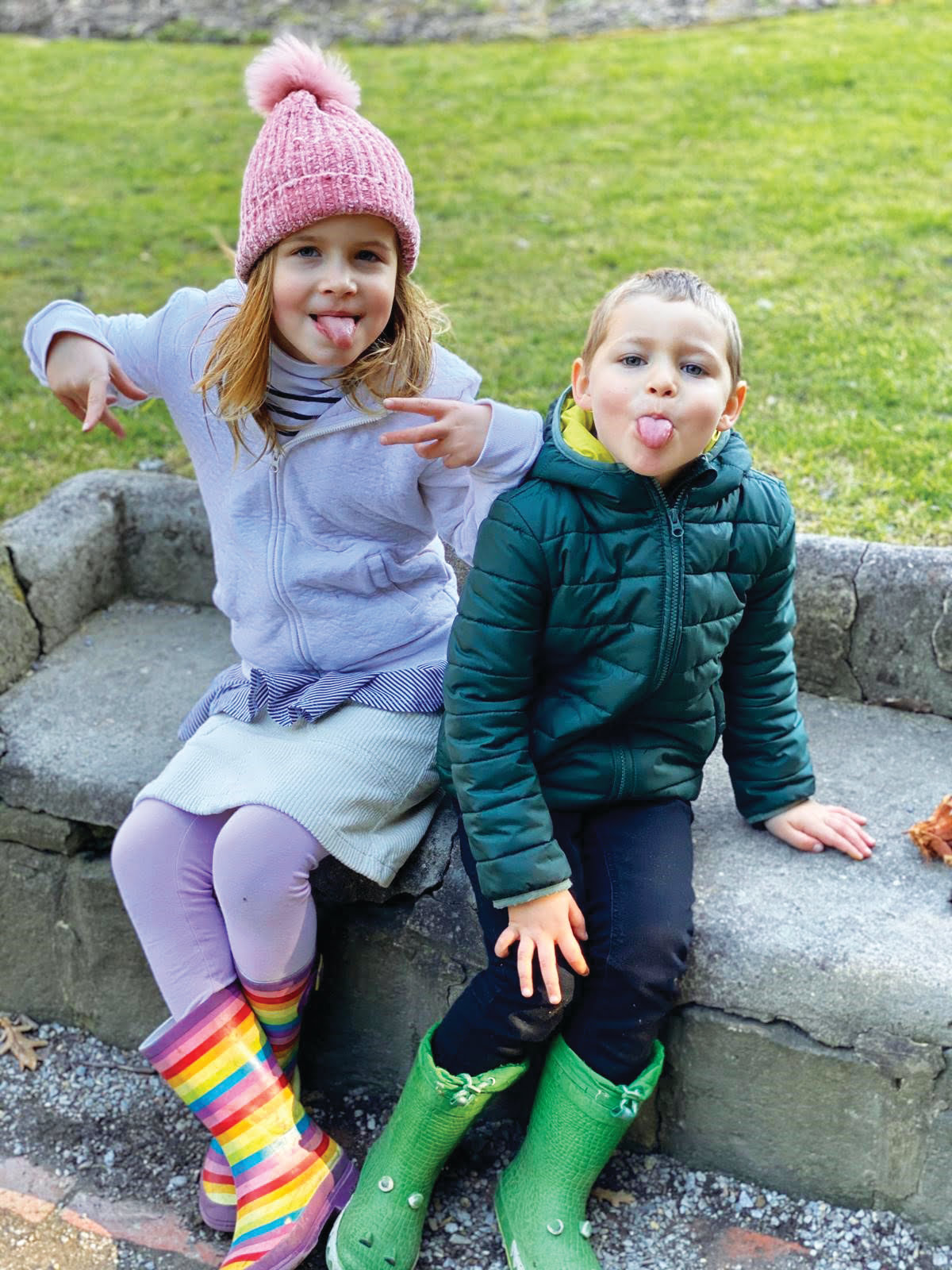
Karola’s Repatriation tips
Find a community in your new home. If you have kids, the local school is an easy way, or local sports clubs, gyms, art groups etc. I joined two neighbourhood Facebook groups, which are a great source of info on local activities and events.
Try not to become a ‘Singapore bore’. Friends and family will quickly get tired of sentences that begin with “In Singapore…” If you’re really struggling with the loss of your expat bubble, find other expats/repats in your area. The Facebook group ‘Aussie Expats Coming Home’ has meet-ups in various cities of Australia.
Get some help. If you won’t have family nearby, try to line up contacts for babysitting, cleaning etc, even before arriving. It helps you to hit the ground running and if you had a helper in Singapore, it will smooth that transition.
Allow yourself time to settle into your new life. I spent a lot of time feeling guilty because I wasn’t immediately loving my amazing new house and my privileged Melbourne life. Repatriation blues are real and it takes time to recover.
Play tourist in your new town, even if it’s somewhere you’ve lived before. Find something for each member of your family to love about the new location.
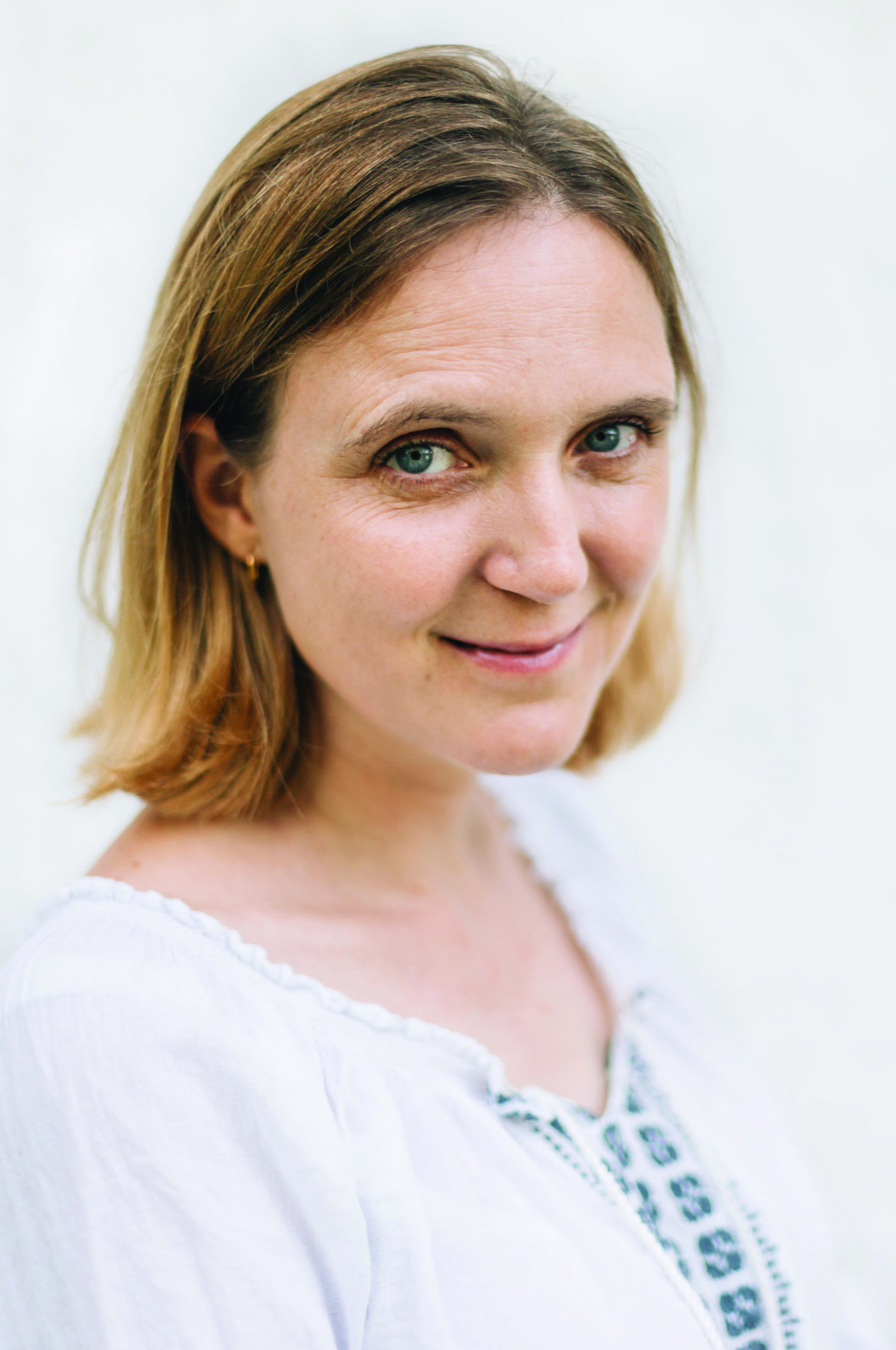
Karien van Ditzhuijzen
Singapore (via Bali) to the Netherlands
So here we are, the wind has turned. The breeze blowing hot and dry weather from the East, with temperatures that the Dutch call a heatwave but make us feel right at home, has been replaced with a stout zuidwester, that fierce sea wind from the West, right off the North Sea. Dutch sea winds bring moderate temperatures and rain, making me shiver as I type this in clothes that are better suited to the tropics.
The Netherlands are beautiful when the sun shines. At the end of our road we walk straight into the dunes, where pathways meander between wild roses and seaberries, all the way to the sea. Dutch beaches are wide and white, worlds apart from the black lava sands of Bali, both equally gorgeous yet so different. The first time we walked onto the beach here, we almost got blown off again.
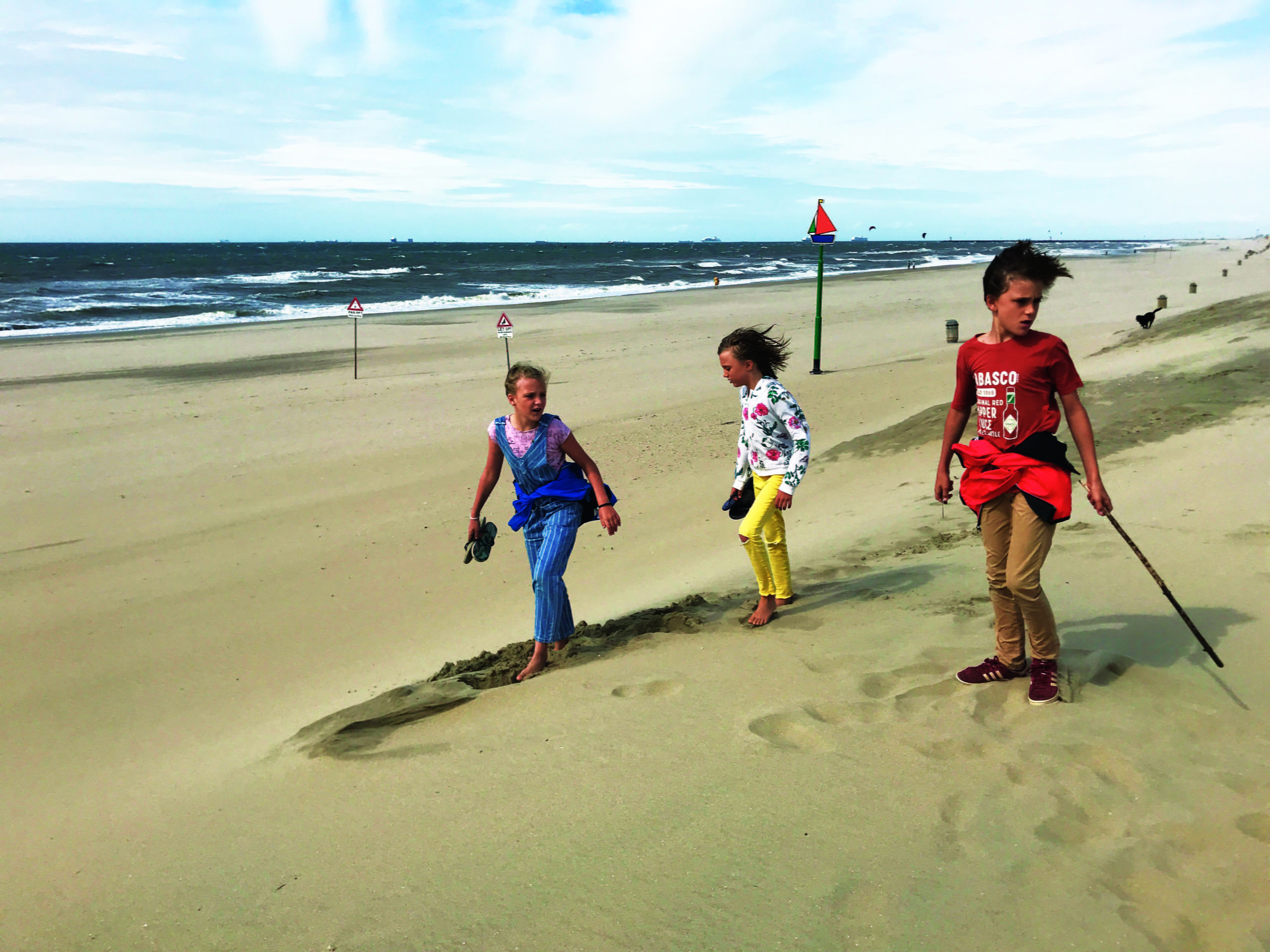
The North Sea is grey and frothy, its waves flat compared to Bali. My menfolk won’t get their wax out for it, but as I see them staring at kite surfers scooting across the waters, I’m thinking those sea winds may serve their purpose yet.
Of course, getting used to living in a new country is about more than the weather. And although many people tell us we’ve moved ‘home’, it doesn’t feel like that, not yet. The Netherlands are new to us. It has been fourteen years since we lived here, the kids never have. Repatriation is strange, you have all the hassle of an intercontinental move, without the excitement of an exotic location. You have changed, with a lot of different cultural experiences, yet you still look and sound the same as a ‘local’. Often, as I stand in a shop or talk on the phone, I feel like an awkward outsider. The Dutch don’t cope well with people that don’t fit into boxes and it makes me feel for ‘real’ foreigners, that don’t speak the language and have no network of friends and family to advise them how to navigate the Dutch bureaucracy where, unlike in Asia, rules are rigid and the same for everyone.
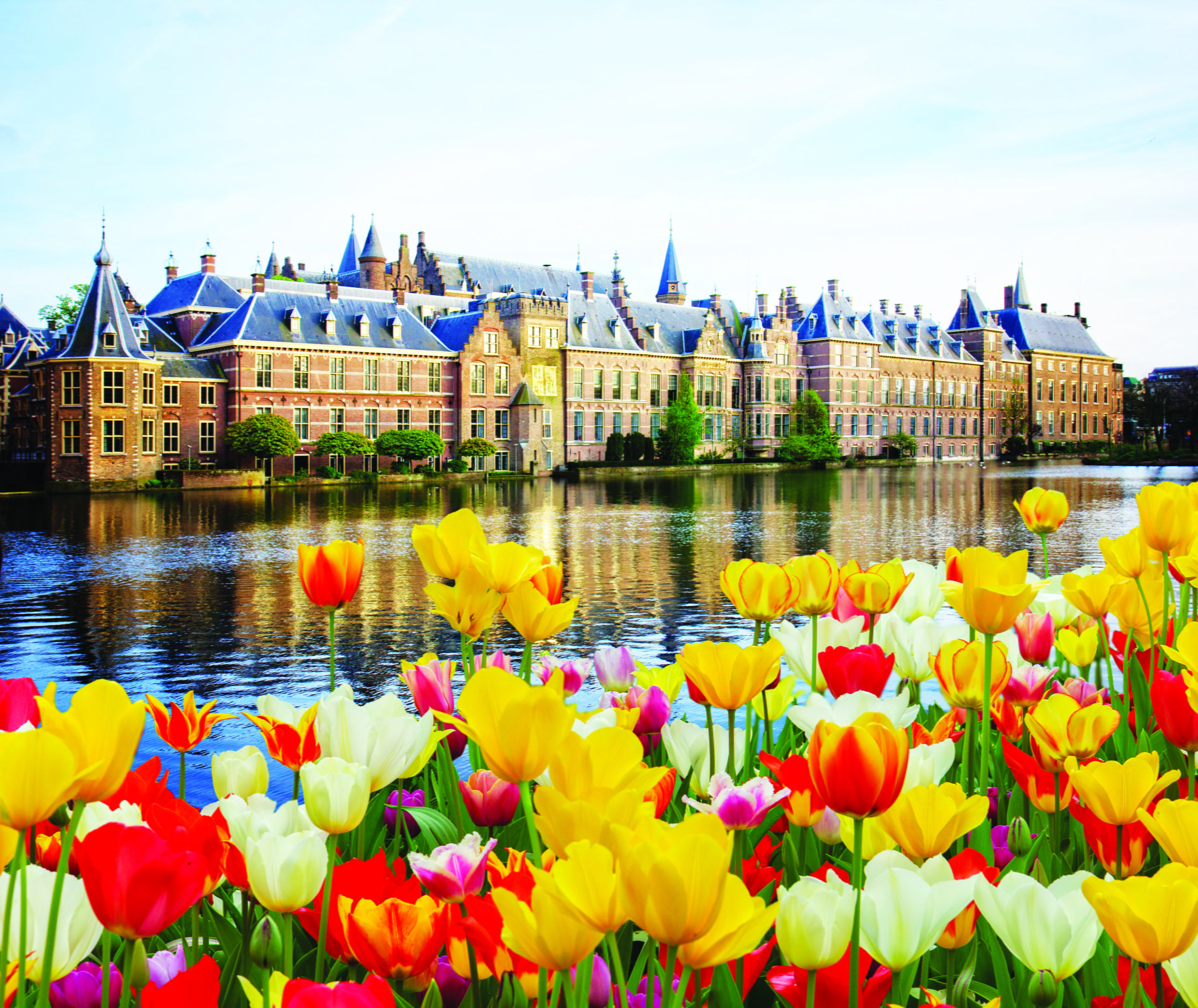
This move was a tad unexpected, and with children that haven’t been at school in half a year, I still feel in limbo. Once school starts, hopefully life will become more normal. As normal as this family gets. When people ask me whether we moved ‘back for good’, I cringe, smile politely and give the only answer I can; ‘for good is a very long time.’ I’m sure the wind will eventually turn again, and who knows where it will blow us?
We are here now and will stay as long as we like it. And there are plenty of things I like about the Netherlands and living in Den Haag. When I feel too cold I list them and I feel better: Family and friends old and new. Kids sleeping over with aunts and grandparents. Cousins. Boating in Friesland. The dunes, the fresh air (although I might revisit this in winter when it becomes too fresh), the wind in my hair on the beach, and the fact that the sun is friendly enough to sit in (ironically I’m much more tanned now than I ever was in Asia). Seaberry kefir and kids picking blackberries. Public libraries. Kringloop winkels (recycled goods shops). Cheese. Petting zoos. My new old fermenting crock. Wild green herbs and flowers. Museums. Sheepskin rugs and wild duck down duvets.
A lot to love and we are here, in the Netherlands. The newest adventure in our long list.




